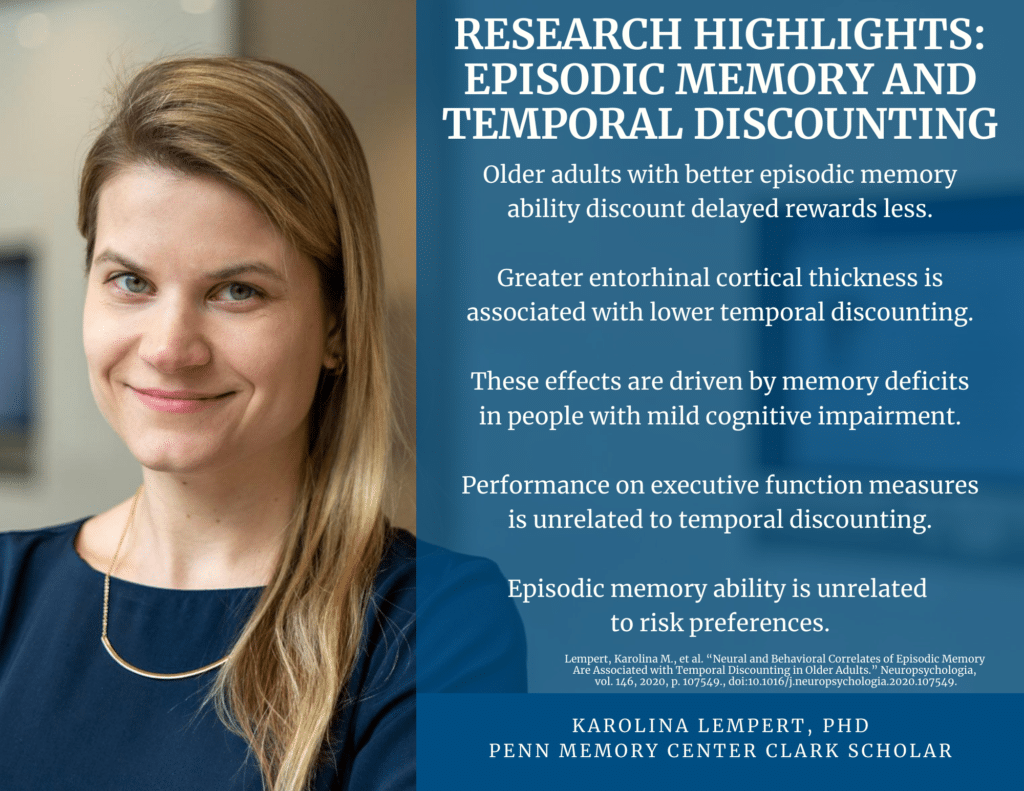
By Kamila Ahmad
Deterioration of a part of the brain known as the medial temporal lobe can cause an older adult to make more impulsive decisions.
One decision-making process — temporal discounting — places a greater value on a smaller and immediate outcome while dismissing a better but delayed outcome: instant gratification, in other words.
Researchers at the University of Pennsylvania Alzheimer’s Disease Research Center explored this cognition and found that individual differences in temporal discounting are driven by episodic memory function and that a deteriorating medial temporal lobe may impact the ability to delay gratification.
This finding was reported in the September 2020 edition of the journal Neuropsychologia by Penn Memory Center Clark Scholar Karolina Lempert, PhD.
In the paper, Dr. Lempert discussed how temporal discounting impacts decision-making for older adults living with normal cognition and mild cognitive impairment (MCI). She explored how the structural integrity of the medial temporal lobe, including in the entorhinal cortex, relates to temporal discounting. The entorhinal cortex is an area of the brain located in the medial temporal lobe and functions as a hub in a widespread network for memory, navigation, and the perception of time.
“Thinning of the entorhinal cortex has been linked to a lowered capacity to retain episodic memories,” Dr. Lempert said. “We showed that the ability to delay gratification is linked to memory ability as well as the structure of the entorhinal cortex. It is possible that atrophy of the entorhinal cortex leads to worse memory and, therefore, worse ability to delay gratification. This will remain to be seen in future studies that look at changes in the memory and brain structure over time.” This capacity influences the intensity of temporal discounting. In other words, the less one can remember, the less one will have the capacity to delay gratification.
Dr. Lempert collaborated with other Alzheimer’s researchers and tested this hypothesis in older adults who are considered cognitively normal and older adults living with MCI. The findings suggest that a decrease in the structure in the medial temporal lobe might increase temporal discounting in older adults who are cognitively normal and older adults who are living with MCI.
Co-authors from the Penn Memory Center include Drs. David Wolk and Dawn Mechanic-Hamilton and former PMC scholars Laura E.M. Wisse and Sandhitsu R. Das